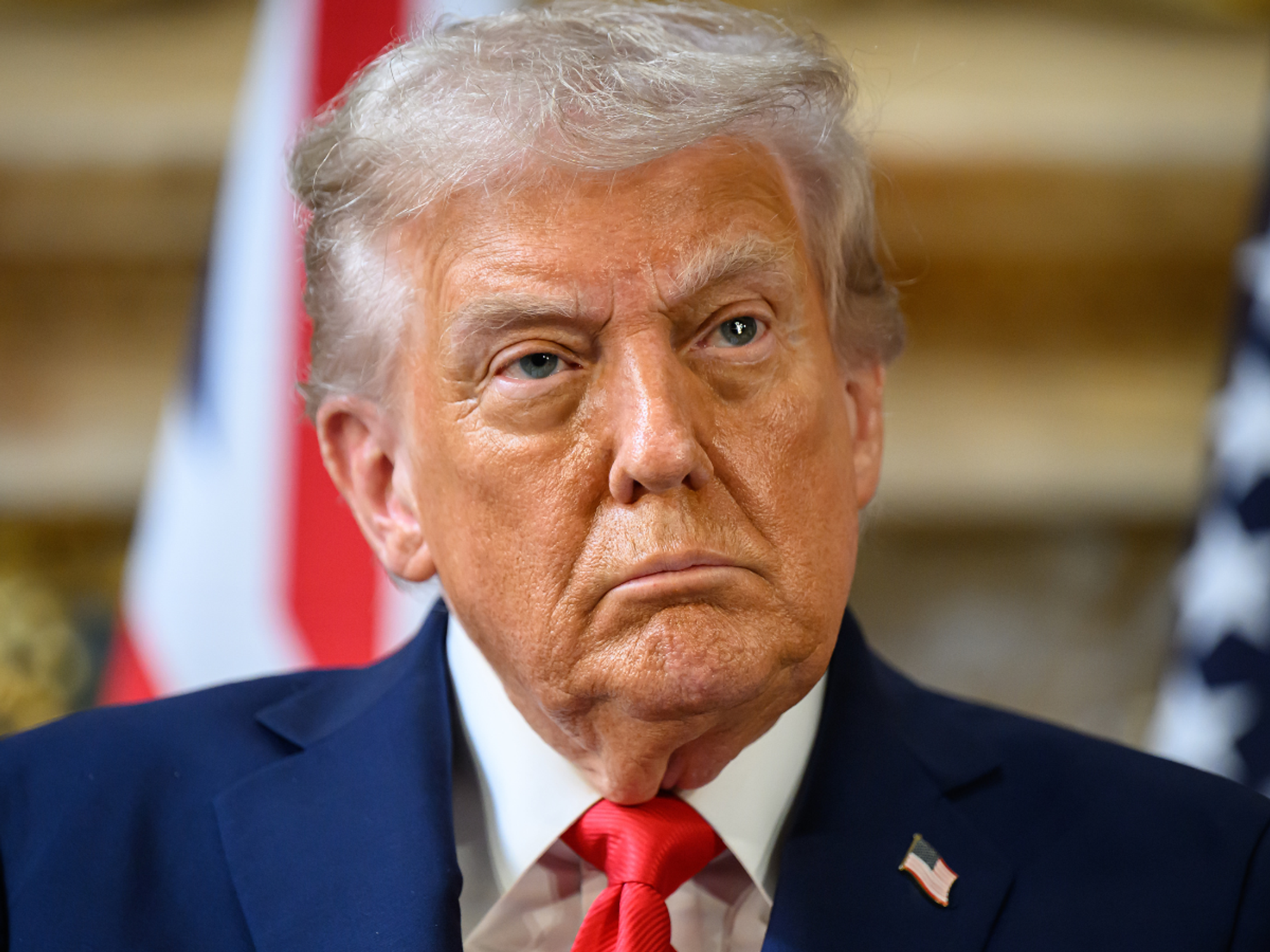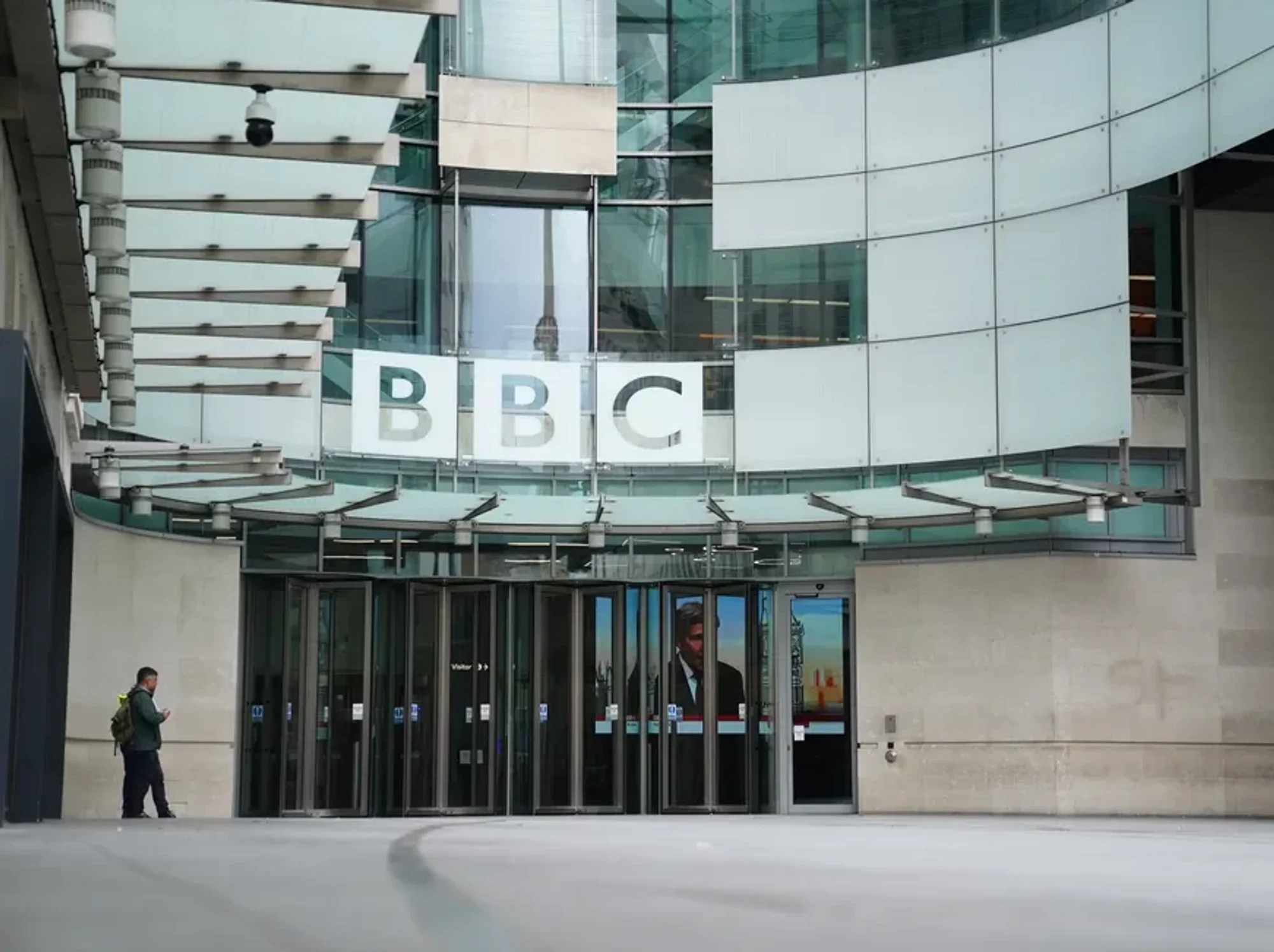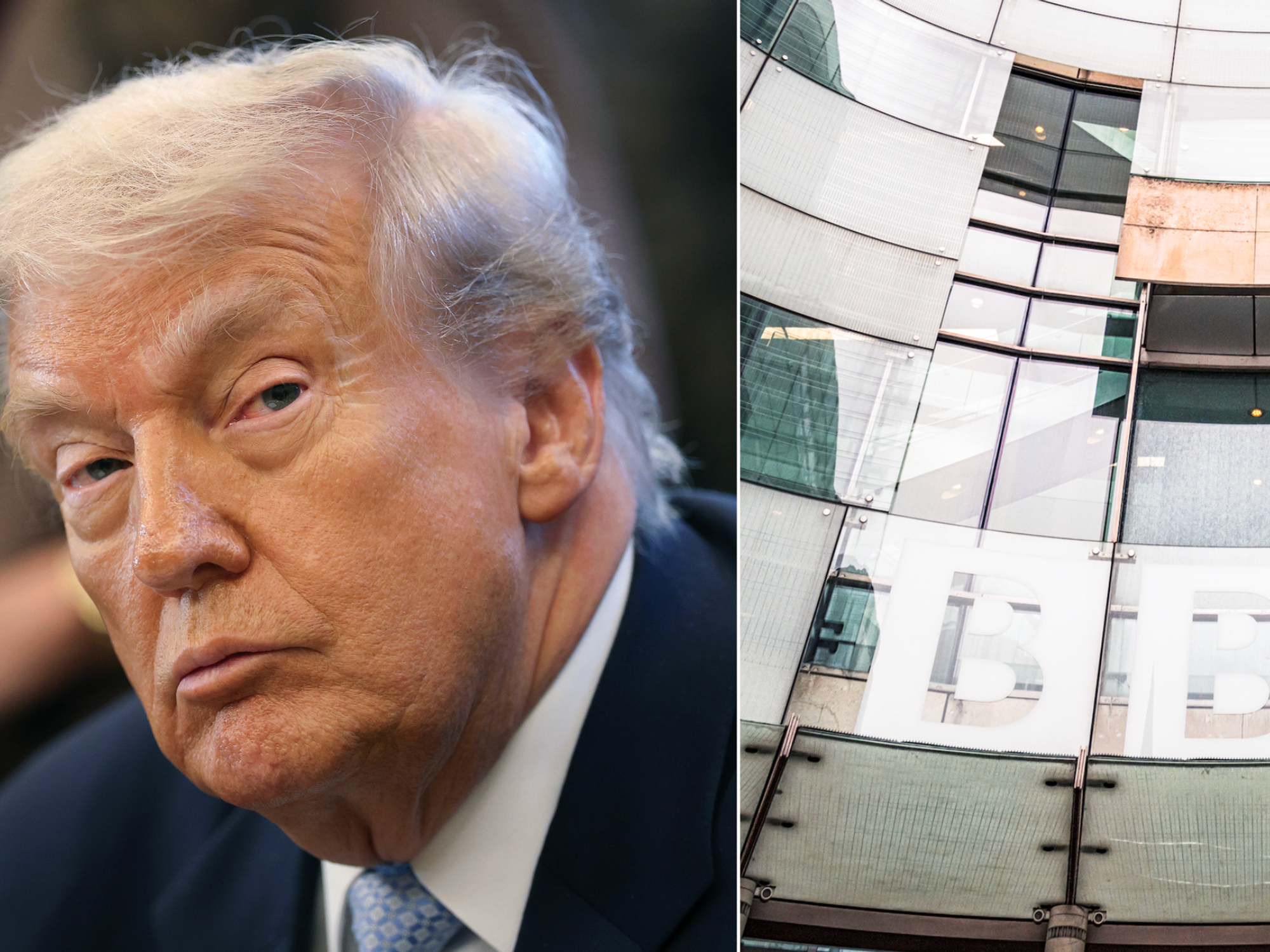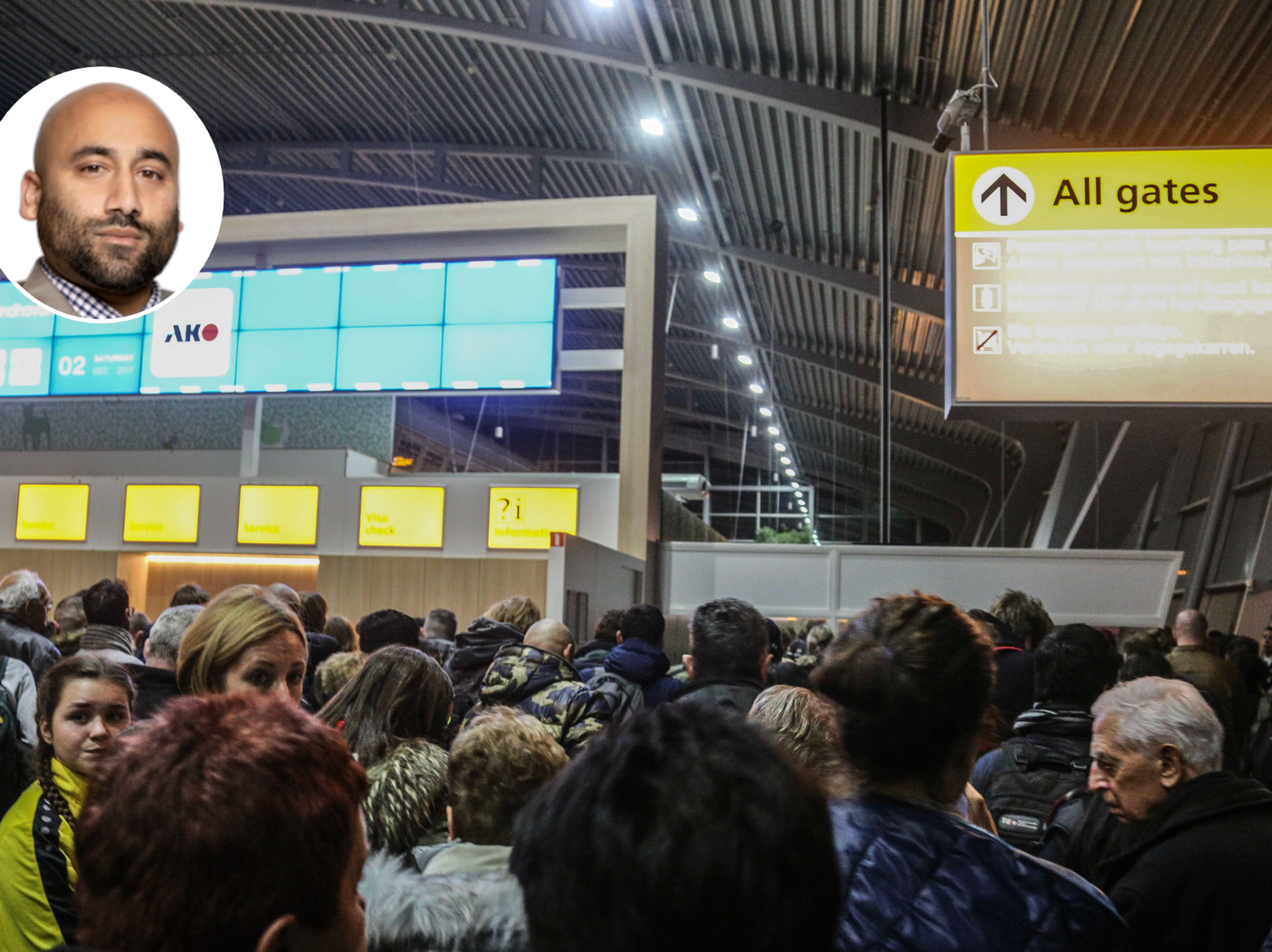Brexit is a success: The EU scapegoat is a sham – Failure on immigration lies with MPs
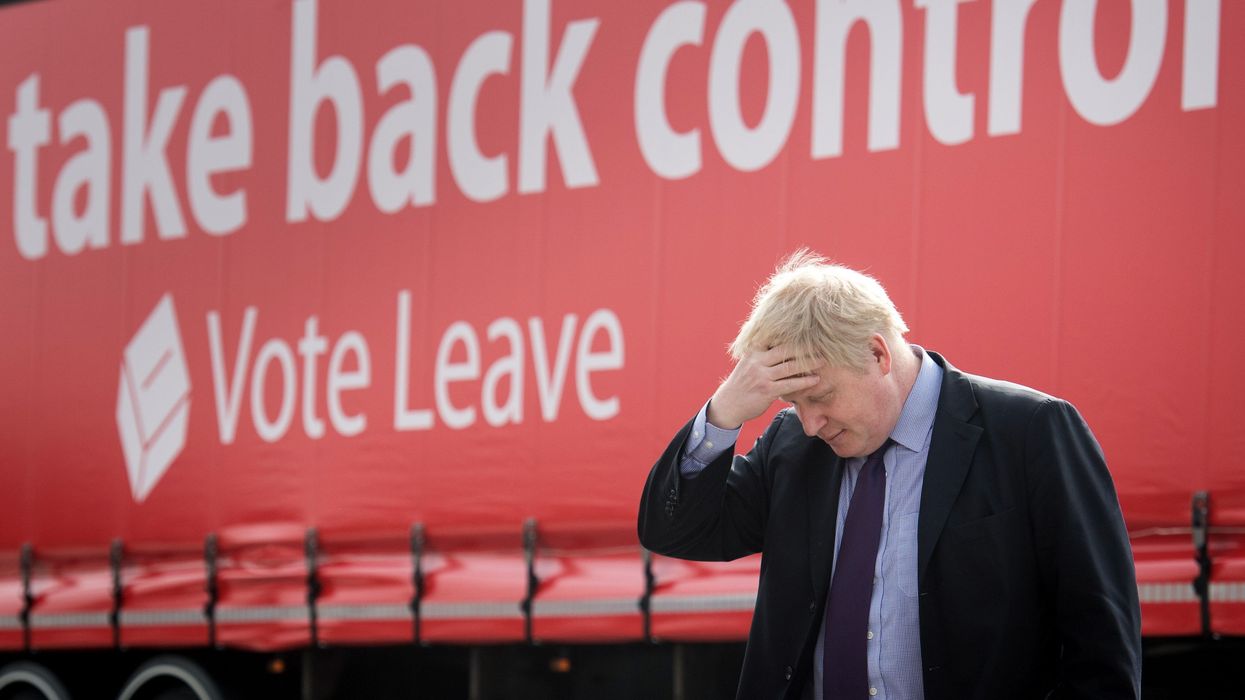
Brexit is a success: The EU scapegoat is a sham – Failure on immigration lies with MPs
|PA

GB News reporter Jack Walters argues Brexit ensured the UK took back control of its borders and the Tories should take full responsibility for skyrocketing net figures
Don't Miss
Most Read
“The Government has failed because of the simple reality that inside the EU we cannot control immigration,” Boris Johnson said ahead of polls opening on June 23, 2016.
“It is literally impossible because we have no choice but to accept the principle of free movement and the European Court has ultimate control over our immigration policy.”
Looking back to Johnson’s remarks eight years ago, Remainers jubilantly point out how legal and illegal migration skyrocketed after Britons backed Brexit.
Net immigration stood at 270,000 in 2015, with 184,000 coming from EU member states.
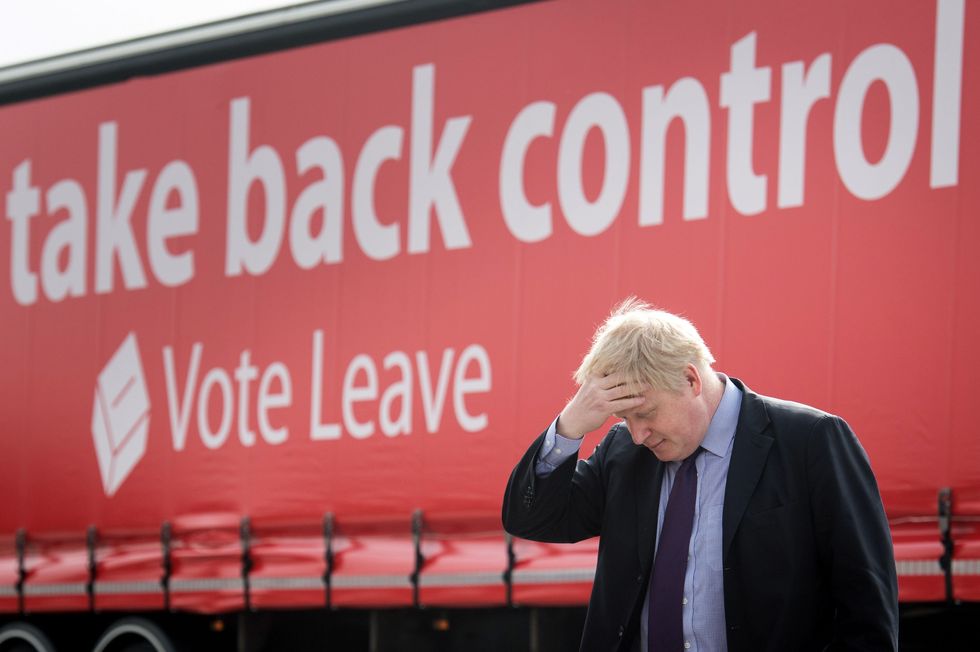
Brexit is a success: The EU scapegoat is a sham – Failure on immigration lies with MPs
|PA
Vote Leave campaigners were keen to highlight how the figure represented adding a population the size of Oxford to the UK every year just from EU migration.
However, net migration reached the record-breaking figure of 745,000 in 2022 and only dropped to 685,000 the following the year.
The situation last year would represent total net migration equalling the size of Oxford four times over.
Remainers have gleefully argued that migration numbers represent a chronic failure of the Brexit project.
Despite legitimate concerns about net migration, the source of the problem does not lie with the decision to leave the European Union.
Consecutive Conservative Governments should instead take full responsibility, particularly Rishi Sunak.
LATEST DEVELOPMENTS: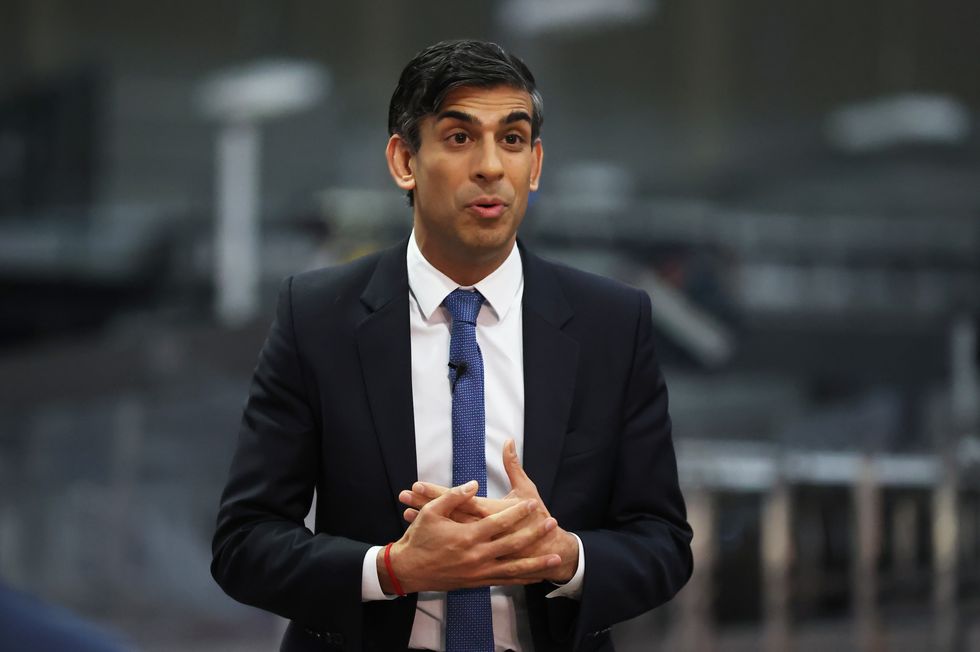
Prime Minister Rishi Sunak holds a Q&A session with local business leaders during a visit to Coca-Cola HBC in Lisburn, Co Antrim
|PA
Declaring his support for Brexit, newly elected Sunak said: “We must have control of our borders and we can only do that outside of the EU.
“As an EU member, every one of Europe’s 500 million citizens has a legal right to move here and there is nothing the UK Government can do to limit those numbers.
“It can’t be right that unelected officials in Brussels have more say over who can come into our country than you.”
It is no longer possible for Prime Ministers to scapegoat Brussels as the source of their woes.
David Cameron was able to sidestep criticism about failing to cut net migration down to the tens of thousands due to the UK being subject to freedom of movement.
Nigel Farage managed to take some advantage of the situation in 2014 and 2015, receiving millions of votes and returning two Ukip MPs to Westminster.
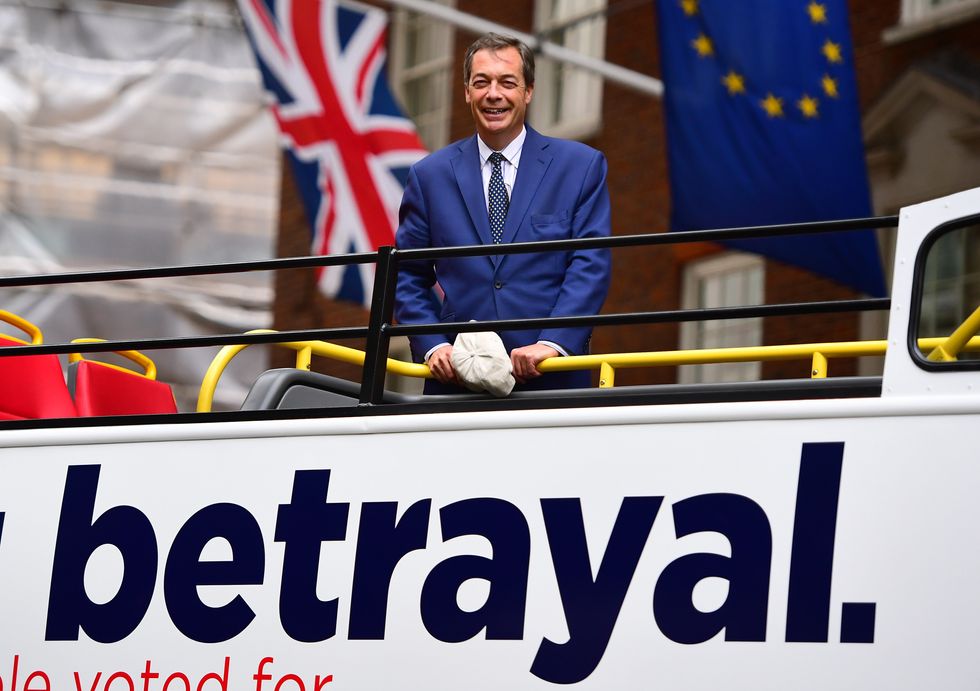
Nigel Farage will likely pick up votes among voters who believe the Tories betrayed them over Brexit
|PA
However, the return of the Brexit stalwart appears to show that while the UK has not taken back control of its borders, the British people certainly have.
With opinion polls showing Reform UK and the Tories almost neck-and-neck, 2016 Brexit-backers and 2019 Conservative supporters have quite rightly decided to give Sunak a kicking.
Both sets of voters, most important in explaining Sunak’s downfall, cite immigration as the key issue ahead of July 4.
Such voters will also likely boost Reform UK, with Farage and a handful of other of the populist party's candidates look poised to pick up seats.
Speaking about the failure of the Tories to deliver Brexit, Farage said: "No, it's not a failure but we failed to deliver.
"It can't be a failure. We've left the European Union. We're now self-governing."
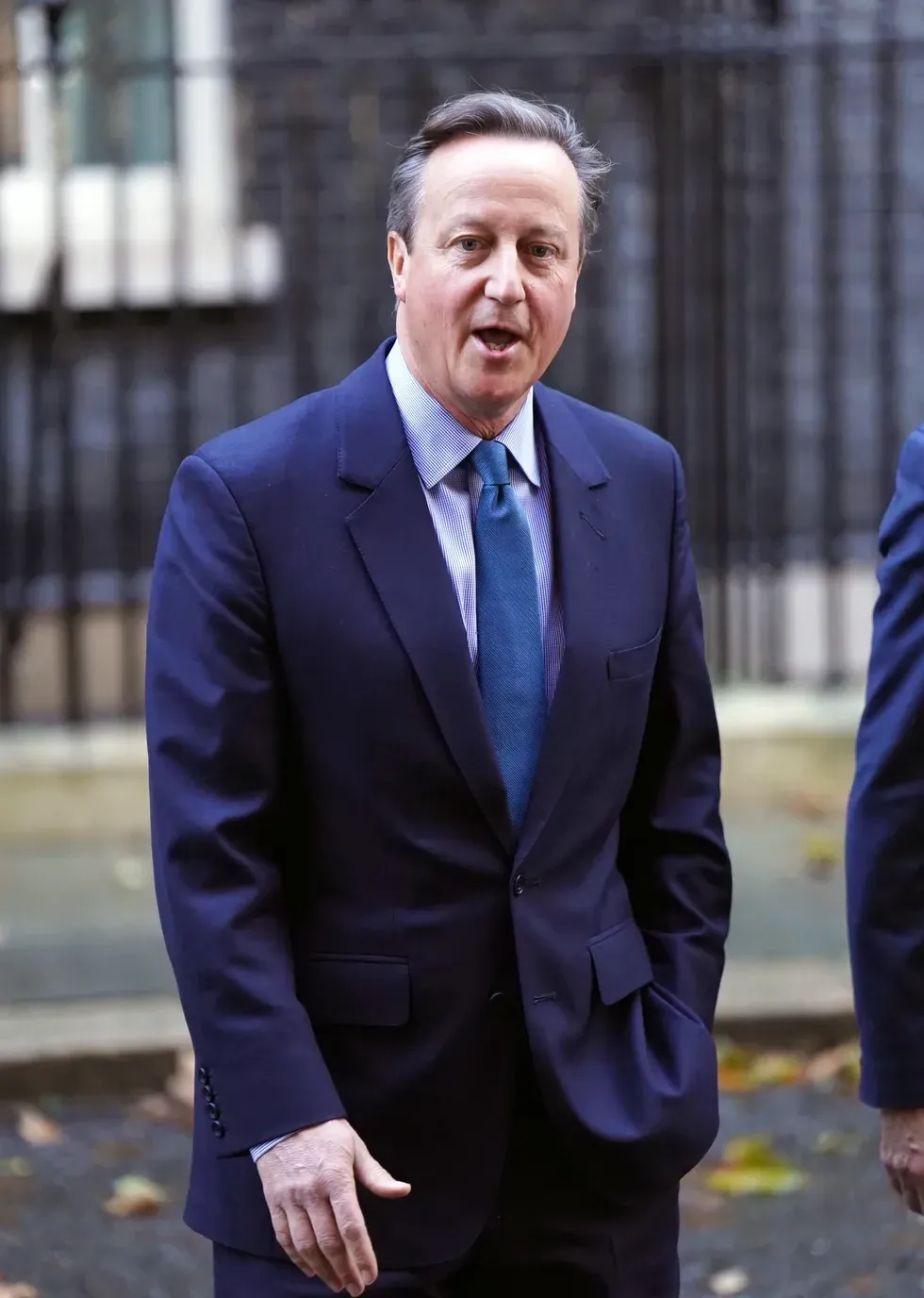
David Cameron
| PAHe added: "Brexit has failed those who voted for it, believing that immigration numbers would be reduced.”
Pressed over whether he was just blaming others, Farage said: "If you put me in charge, it would be very, very different. Of course they didn't do that.
"The Conservative Party never believed in Brexit ... They picked it up as a political opportunity, and they failed to deliver."
There is growing speculation about whether withdrawing from the European Court of Human Rights is also needed to complete the illegal migration pillar of the Brexit crusade.
Sunak appeared far from definitive on the issue.
The Prime Minister instead said: “If I'm put in a position where I'm forced to choose between those things, I'm going to put our country's national secruity first every single time."
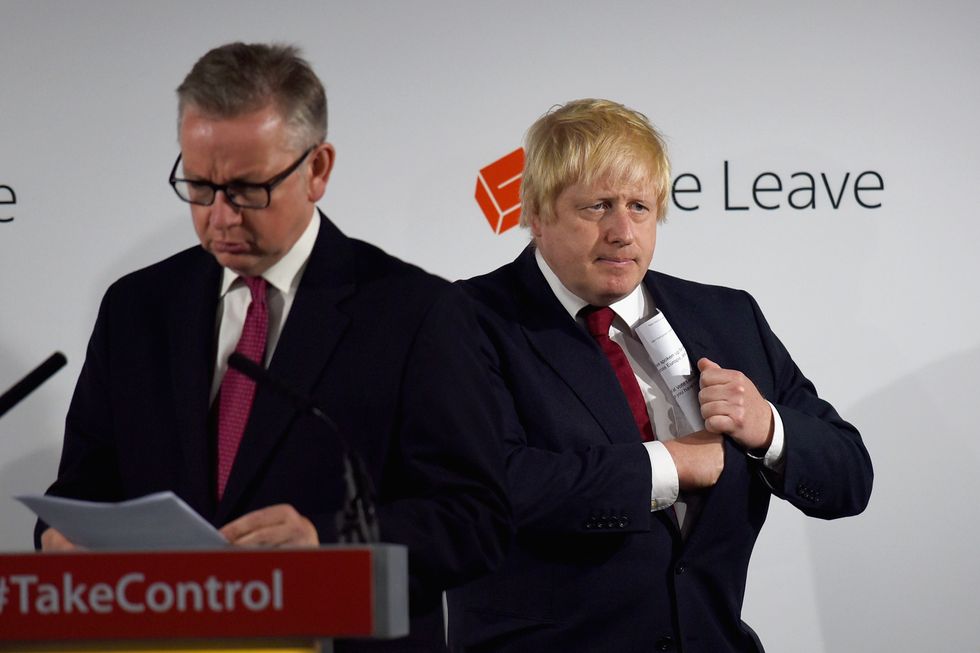
Michael Gove (left) and Boris Johnson hold a press conference at Brexit HQ in Westminster
|PA
However, it’s not just when it comes to taking back control of immigration that Brexit has proved a success.
Major decisions on regulations and markets, which often derive from the democratically-deficient European Commission, were previously imposed on the UK.
Unleashed from the shackles of the Brussels bloc, British voters can now punish Governments for implementing shoddy ideas.
Independence also helped ensure that Brexit Britain could join Aukus and mobilise much quicker than our former EU partners to support Ukraine after Russia invaded the ex-Soviet state in February 2022.
Even the economics of severing ties with our nearest neighbours has been complicated.
The Office for Budget Responsibility issued the often misquoted estimate that Brexit will cost UK GDP four per cent over what some experts think could be 15 years.
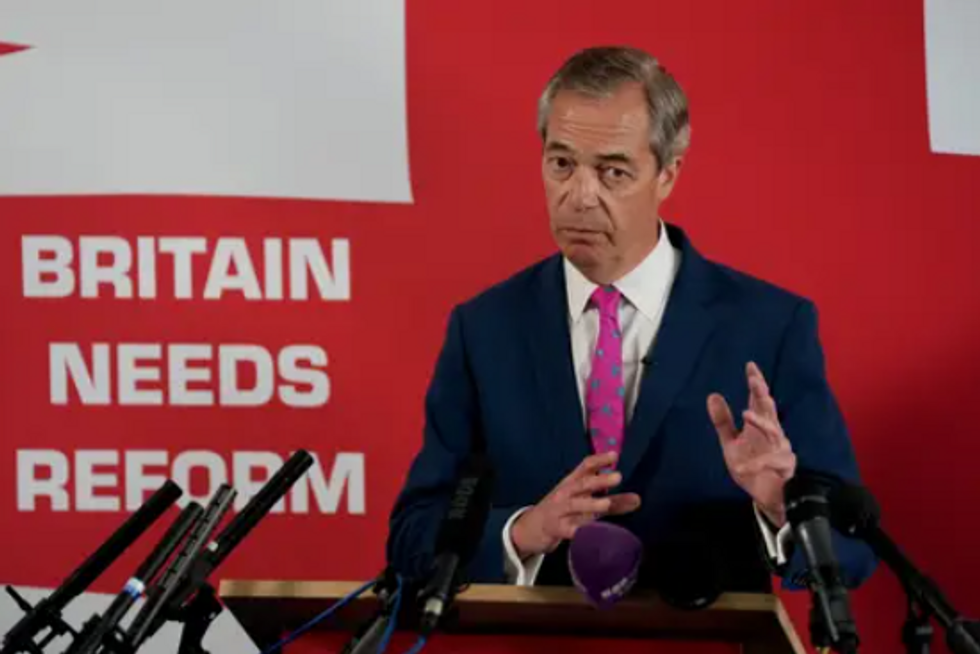 Nigel Farage was speaking at a Reform UK conference | PA
Nigel Farage was speaking at a Reform UK conference | PA However, France continues to see stagnant growth and Germany has landed itself in a recession.
The last time I checked, neither nation opted to leave the EU and remain leading lights in the continental club.
In fact, GDP growth among Europe’s four biggest economies hardly paint a bad picture for the UK.
Britain experienced eight per cent growth since it held the referendum, roughly the same as France.
Meanwhile, Germany and Italy were somewhat lower at around six per cent.
The UK continued to outpace Germany during its recovery from Covid.
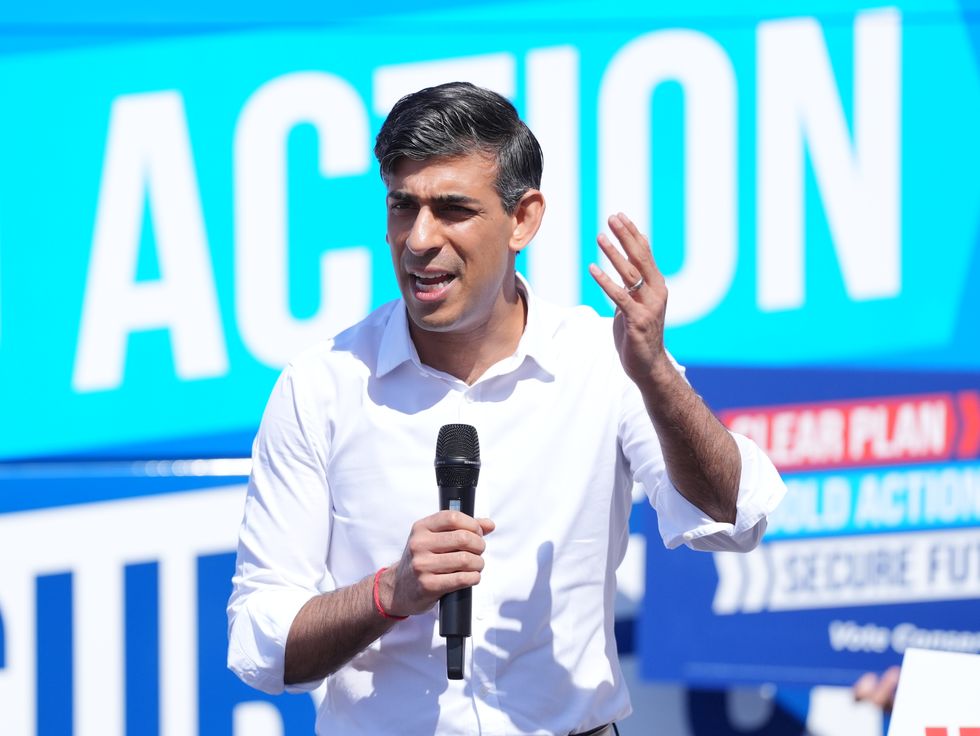 Rishi Sunak | PA
Rishi Sunak | PA However, Italy and France admittedly fared much better.
Even exports and imports haven’t witnessed the collapse many feared, both rising by around 11 per cent.
London also keeps a grip on its crown as Europe’s top city for foreign financial services investment and a potential Brexit exodus of jobs fundamentally failed to materialise.
This isn’t to say Brexit has been completely plain sailing, we’ve had paperwork complications at Dover, issues with Northern Ireland and added queues at airports.
However, broadly sluggish growth and an illegal immigration crisis infects the economies on either side of the Channel, with Mediterranean crossings splitting EU member states.
But the primary point of Brexit, restoring sovereignty to the British people, is an unequivocal success.
And July 4 is the first great opportunity for voters in a post-Brexit Britain to have their say.






